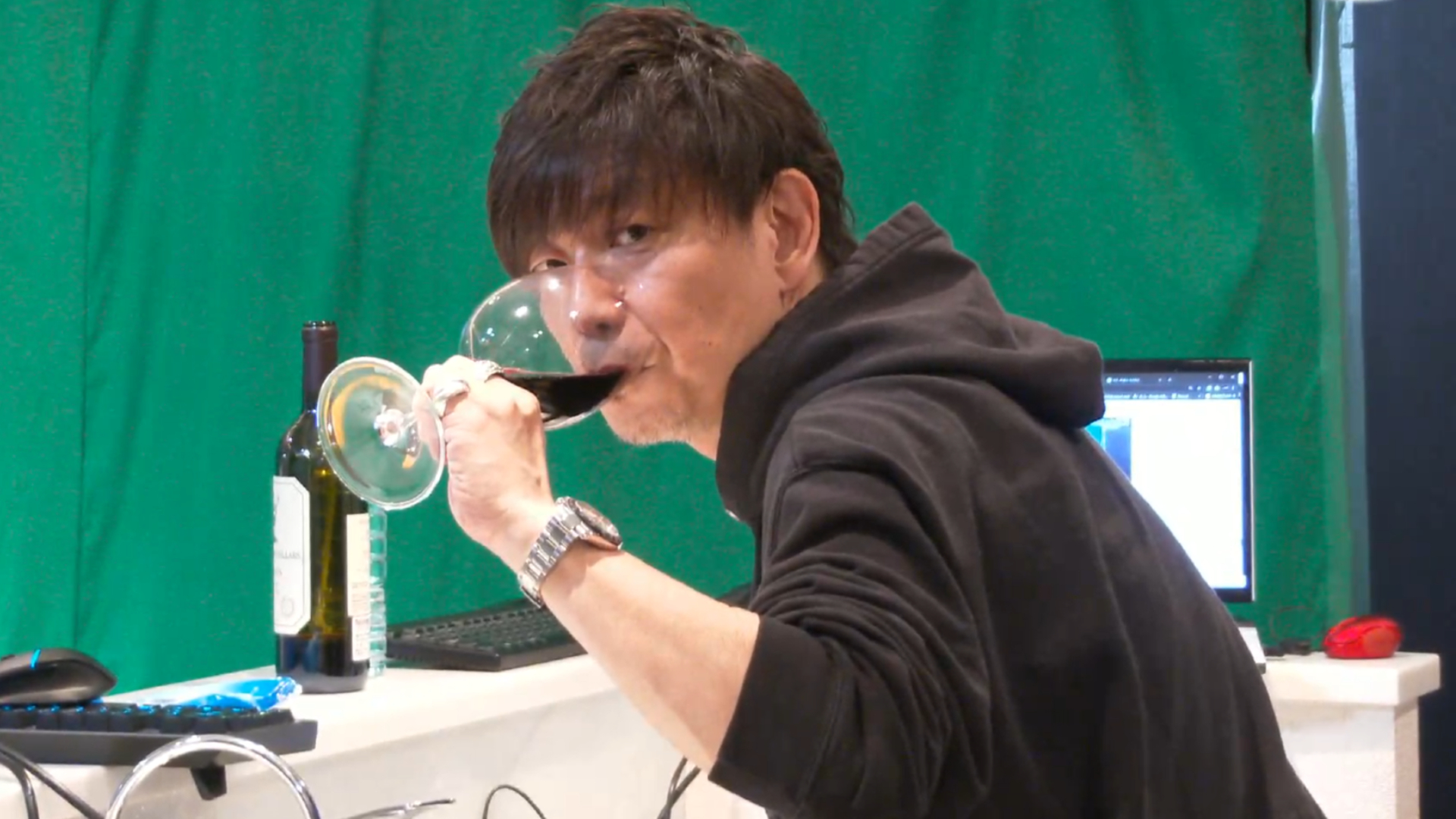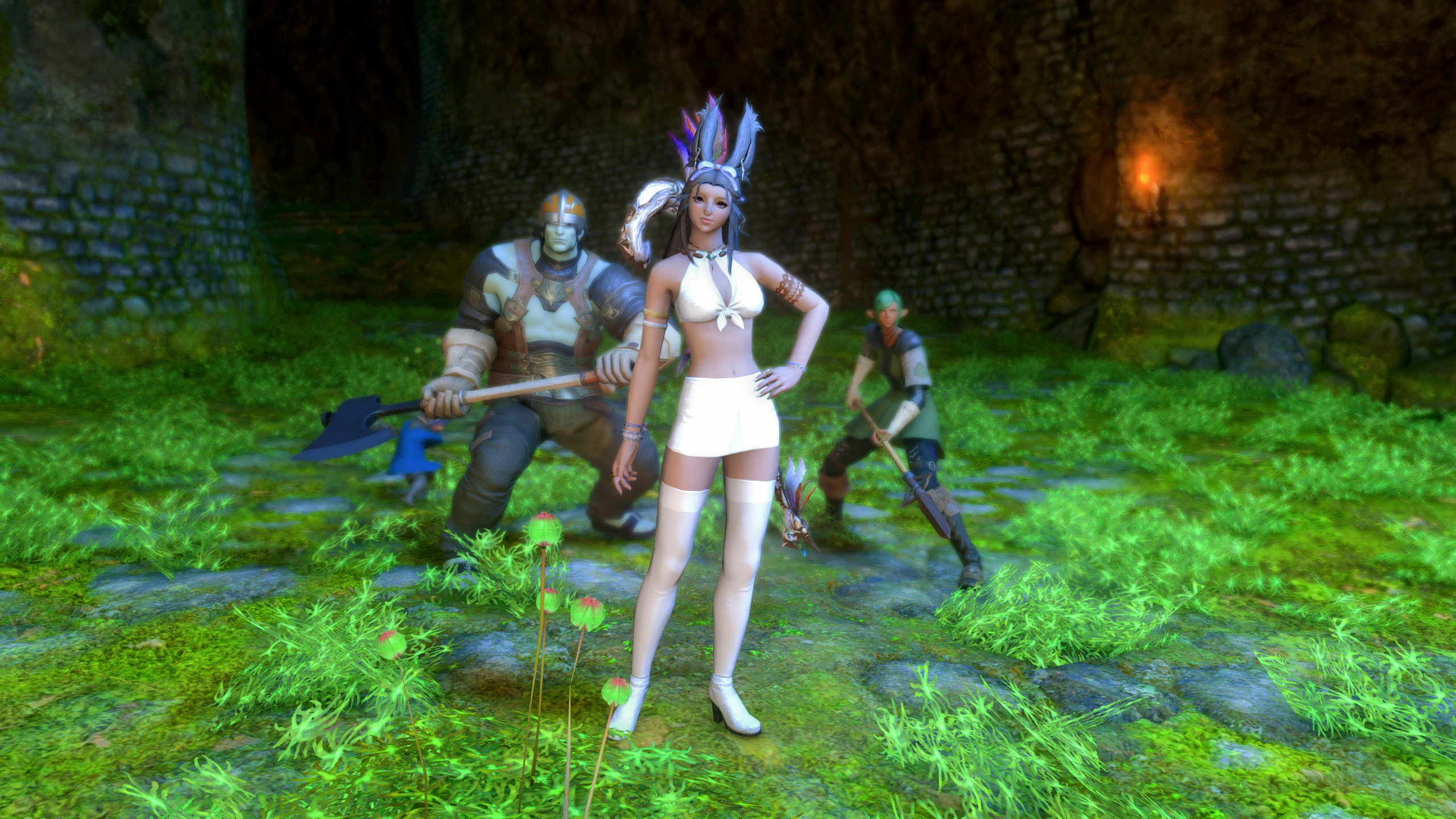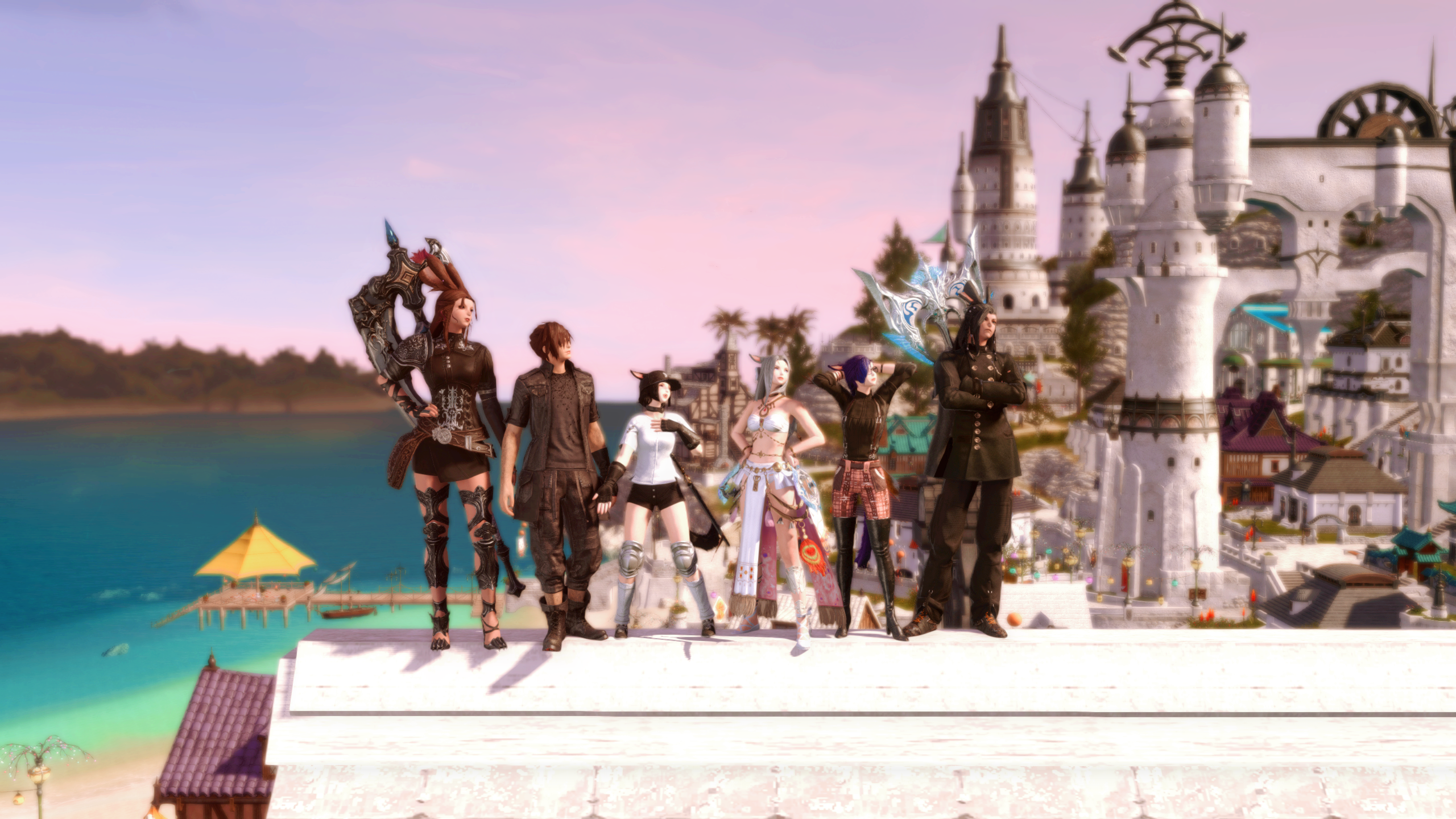Final Fantasy 14 director tackles the hopeless task of trying to get MMO players to uninstall UI mods
Mr Yoshida is not in a good mood.

Final Fantasy 14: Endwalker was released six months ago, wrapping up the game's decade-long story arc, and fans are desperate to know where director Naoki Yoshida and the team will take the world next. This month's patch 6.1 is laying the groundwork for that, and introducing more bits of endgame content for players.
As with pretty much every big MMOG ever, there are a bunch of third-party tools and mods that experienced players make use of. When I got back into WoW for a brief period around Shadowlands, and I am not any kind of veteran, I probably spent about two hours fiddling with UI, inventory and map mods before taking a single step. They're so ubiquitous in these games that they just feel like part of the scenery.
Hold that thought, because here comes Final Fantasy XIV director Naoki Yoshida to say, no, these things are Bad Actually.
In a new blogpost Yoshida writes: "With the release of Patch 6.11 and Dragonsong’s Reprise (Ultimate), we’ve heard concerns from players about the use of third-party tools and the potential for game server emulation. I’ve touched on these topics previously in LIVE Letters, but I would like to take this opportunity to formally address them."
Yoshida normally comes across as quite a jolly figure, a wine and cookies kinda guy. But he's in a very stern mood here and also says we're not to share "excerpts of this text out of context"!
The post begins with a reminder that FFXIV's terms-of-service state "the use of third-party tools is strictly prohibited. Players who are determined to be using third-party tools will have their accounts suspended, or permanently banned for repeat offenses."
Yoshida says that players have asked the dev team to define what tools are and are not permissible: but this would require they assess every third-party tool available across all devices.
Keep up to date with the most important stories and the best deals, as picked by the PC Gamer team.
"Unfortunately, such an undertaking is physically impossible, which is why we decided to simply prohibit the use of all third-party tools and software.
"By the same token, it is impossible for us to check what programs are installed on every player’s PC. This is why we cannot identify and reprimand offenders 100% of the time."
Yoshida then gives examples of the rule violations that the FFXIV team prioritise:
- Use of tools that allow players to more easily complete content.
- Modification of the UI to display additional information.
- Use of packet spoofing tools.
- Any actions or public statements that promote use of third-party tools.
Yoshida essentially says that Square Enix's position remains the same. Particularly eyebrow-raising is that UI modifications are among the team's targets, because getting the UI feeling just right is something of an obsession for many MMOG fans. Yoshida addresses this in a manner that I suspect many players won't be happy with.
"We believe that people use the [UI] tools to expand the HUD and display more information because they feel that existing functions are insufficient for tackling high-end duties. In recognition of this, we intend to review the most prominent tools, and in order to discourage their use, endeavor to enhance the functionality of the HUD. Though it will take some time, we're determined to make it happen—not least for the benefit of those who play on consoles."
That's a promise of a solution, not a solution, and I'm not sure any developer in the world could keep up with the demand for micro-tweaks that mods provide. Oh well: whatever Square Enix says, they'll still be everywhere.
Yoshida goes on to talk about the race among players to complete savage/ultimate raids, and it does seem like a combination of alleged PvP hacks and the racing has brought this to a head: he basically says that, if players aren't participating in the manner intended (i.e. without tools), the developers will stop acknowledging these achievements.
"Because such races are unofficial, we usually limit our involvement to some comments after a number of teams have cleared the duty. By offering our congratulations via the official Twitter account and confirming time stamps, we want to recognize your achievements and contribute to community excitement. However, if our recognition encourages excessive competition and controversy to the extent that players resort to third-party tools, I regret to say we may have to reconsider making comments in the future."

Yoshida then goes on to address a recent leak thanks to data mining, which among other things revealed the final raid boss. The director says that the leak came from "an oversight on the development team's part [that] slipped through our checks."
However, a screenshot from a part of the game players had yet to reach was also leaked. Unfortunately, this one sounds like it will have much more serious consequences for someone.
"We believe it came from an insider, and are in the middle of a thorough investigation," says Yoshida. "We refrained from making this known earlier because it would make the investigation more difficult if the suspect were aware of it. Such leaks are utterly unacceptable, for they not only undermine the efforts of the development and operation teams, but also take away from our players' enjoyment.
"Previously, when a major leak occurred prior to the release of Shadowbringers, we succeeded in identifying the culprit and took legal action. That there has been another leak despite this is deeply concerning, and in addition to bringing the offender to account, we'll take measures to prevent a repeat of the situation."
Yoshida goes on to bemoan the sharing of such leaks, and ends: "I've made this request before, and I make it again: please refrain from disseminating mined data."

Final Fantasy XIV is at a point in its history where there's more interest in it, and scrutiny, than ever before. Yoshida himself says it "has grown into a titan among games."
"Many more eyes are now on FFXIV, and posting about it garners a great deal of attention, which has changed how information is shared online and spreads throughout the playerbase," writes Yoshida.
"With this in mind, I would like to encourage the development of a strong FFXIV community by continuing to provide commentary as I have today. Truly, I cannot apologize enough for the many mistakes we made in 6.1, and the resulting disappointment in such a major patch.
"Nevertheless, we intend to forge ahead so that FFXIV may continue to bring joy to as many players as possible, and we hope you will stay with us on this journey!"
Well... this one is gonna run and run. Obviously Yoshida is justified in feeling angry about the leak in particular: with a giant joint project like this, internal staff 'ruining' the surprise of new content must be infuriating. At the same time the target of his ire shouldn't be the players or sites that subsequently share the material—though I would say that of course.
When it comes to thirdparty mods, it's hard to see how Yoshida's words will make a difference. Most MMOG developers come to some sort of a mutually beneficial truce with unauthorised thirdparty mods. Blizzard won't pay any attention to WoW UI mods unless the creator's trying to monetise them. ArenaNet turns a blind eye to similar stuff in Guild Wars 2, and that's been the story in pretty much MMO I've ever played.
If you're sinking hundreds of hours into something and want to tweak UI elements—that is really understandable, and to my mind doesn't impact on others. Final Fantasy XIV has absolutely everything going for it at the moment. So lord knows why Yoshida wants to warn players off using harmless tools to enhance their enjoyment.

Rich is a games journalist with 15 years' experience, beginning his career on Edge magazine before working for a wide range of outlets, including Ars Technica, Eurogamer, GamesRadar+, Gamespot, the Guardian, IGN, the New Statesman, Polygon, and Vice. He was the editor of Kotaku UK, the UK arm of Kotaku, for three years before joining PC Gamer. He is the author of a Brief History of Video Games, a full history of the medium, which the Midwest Book Review described as "[a] must-read for serious minded game historians and curious video game connoisseurs alike."

